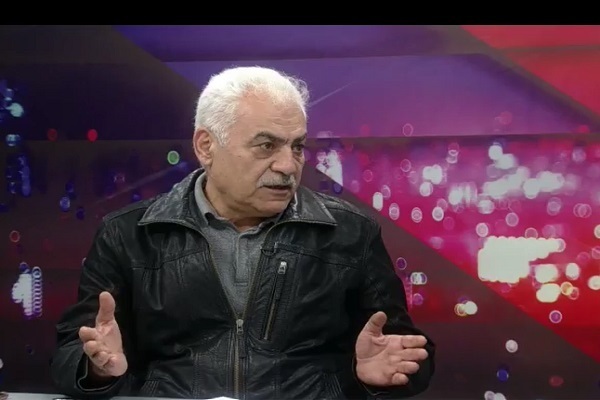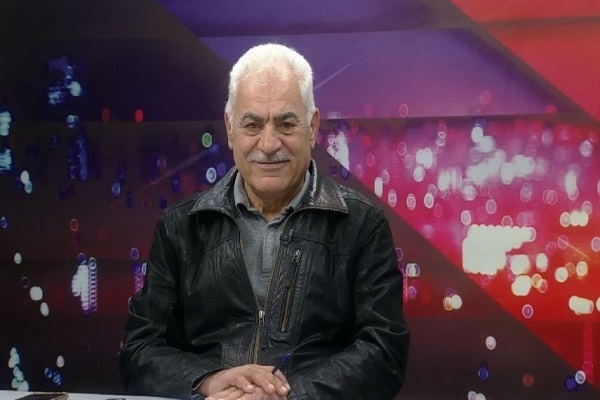Resistance to Spread from Gaza to West Bank, Jordan: Lebanese Analyst

Speaking in an interview with IQNA about the ceasefire in Gaza and the future of resistance, Mikhael Awad added that the continuation of the war until the complete liberation of Palestine is achieved is inevitable.
The interview is as follows:
IQNA: Some Arab regimes have counted on the role of the US and what is called Trump’s “peace plan’. What do you think? Can this plan, as its supporters say, lead to the end of the war and the beginning of peace?
Awad: The official Arab and Islamic system is, in fact, the product of the first and second world wars. Most of the existing governments and borders were formed with the aim of interacting with the Zionist regime and serving the interests of the West. Their role has been to maintain dominance, plunder resources and prevent the emergence of an independent power in the region. To this day, these same governments rely on the United States and believe that America is a safe haven.
However, recent events, including the Israeli attack on Qatar, have shown that Washington neither provides security nor is trustworthy. America is essentially a supporter of Israel and exploits the region’s resources for its interests. However, Arab leaders have remained in their old illusions and habits and continue to insist on the same dependent policies.
IQNA: Hamas is said to be committed to implementing the ceasefire agreement with full confidence and determination, while this ceasefire is fragile and the Zionist regime has a long history of violating agreements. How do you assess the future of this process?
Awad: Hamas has received encouragement from regional guarantors such as Turkey, Egypt and Qatar; even Trump has repeatedly said that he has negotiated with Hamas through his mediators and praised their role. These factors have made Hamas optimistic about the continuation of the agreement. On the other hand, after the widespread destruction, Gaza is seeking relative peace for reconstruction. However, the American-Israeli plan is quite clear; A project to control half of Gaza, called the “Riviera Plan”, which Trump spoke about. The US vice president had announced that reconstruction would only take place in areas occupied by Israel. (Israel regime’s prime minister Benjamin) Netanyahu is also seeking a share and sees the continuation of the war as a means to achieve his political goals.
Read More:
The destruction of Gaza and the killing of its people were a form of service to the plans of Trump and a group of businessmen in his government. However, the outcome of the war has disgraced Israel and weakened Netanyahu’s position, and it is feared that if the crisis continues, he will face the collapse of his government. Accordingly, the risk of a return to conflict still exists.
IQNA: Part of the agreement is conditioned on the release of prisoners, but some fear that Israel will violate the agreement after this part is implemented. Is it possible that the Zionist enemy will mess everything up again?
Awad: Israel is a treacherous enemy and can act against the agreement at any moment. Trump himself has acknowledged that continuing the war is detrimental to American interests and even told Netanyahu, “You can no longer count on the support of the world, because the world is against you”. If Netanyahu rebels, Trump will certainly not engage in a battle with him to protect Gaza or defend Palestinian rights. America is always trying to manipulate developments to benefit its interests, not for justice and freedom.
IQNA: After the ceasefire, will the Zionist regime really adhere to a complete withdrawal from Gaza? And can Washington or Trump be considered an impartial mediator and guarantor of the agreement?
Awad: In my view, the war is not over yet and will continue until a decisive victory is achieved by one of the two axes. Netanyahu has stated that his ultimate goal is to disarm Hezbollah and the resistance in Gaza, as well as to empty large parts of Palestine and declare a “Greater Israel”. However, the real balance of power shows that the result will be the opposite. Israel’s field defeats, failure to achieve ground objectives, and sole reliance on aerial bombardments have brought the regime to the brink of collapse. The scene of resistance will probably spread from Gaza to the West Bank and even to other areas such as the Golan and Jordan. In such circumstances, popular resistance will become a widespread reality and the continuation of the war until the complete liberation of Palestine from the sea to the river is inevitable. Neither the so-called Ibrahimi plans, nor normalization, nor a new deal, none of them are effective anymore.

IQNA: Some believe that the current stage has created a new balance between the axis of resistance and the axis of compromise. How do you picture the future of this situation?
Awad: In Lebanon, based on the constitution and the balance of clan powers, it is impossible to disarm the resistance by force. The Shia community, which constitutes one-third of the country’s structure, has influence from the political level to the army. The Lebanese army is limited in terms of weapons and incapable of confronting Hezbollah militarily, and its commanders have also acknowledged the government’s inability in this regard. Even American officials have admitted that the Lebanese government is unable to disarm the resistance. In the event of any Israeli aggression, this action will destroy the infrastructure and, as a result, restore the legitimacy of the resistance. The Lebanese people know that the only force that can defend the country is the resistance.
Read More:
Recent scenes of Shia parades and social cohesion have shown that this huge popular force is deeply rooted and that no power in Lebanon is capable of confronting it. Hezbollah’s Secretary General has also stated that it will defend the weapon of resistance until its last breath, because this weapon is a symbol of national dignity and independence. Any possible Israeli attack will only expand this military power, not destroy it.
IQNA: The United States and Israel are trying to disarm the Islamic resistance in the region. What strategy is Iran adopting in these circumstances and is it possible for the weapon of resistance to be destroyed?
Awad: With a deep understanding of the nature of the current conflict, Iran considers it not a minor war but a decisive battle for its existence and that of the Islamic Ummah. Tehran never shows a momentary reaction, but acts with a strategic and long-term vision to restore the balance of power in the region. From Iran’s perspective, its security begins in Palestine and extends to the Mediterranean. This approach has made it more stable than other states. Tehran believes that the more intense these wars become, the more obvious the weakness of artificial structures will become and the legitimacy of the resistance axis will be proven as the only historical and effective option for liberating the region.
4313273



